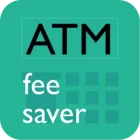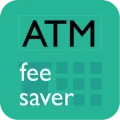Wondering how to pay for metro and bus rides in Myanmar - cash only, or do cards work too?
Despite being cash-based, buses in Yangon were surprisingly efficient. From my guesthouse near Kandawgyi Lake, I used YBS route #37 into the city center, paying 200 kyat in coins. ATMs from KBZ and CB Bank are everywhere, so I never struggled to get change. For long-distance, JJ Express and Elite Express buses were cheap and reliable. While no cards are accepted for tickets, I liked the low fares and how locals always helped me find the right bus.
Public transport in Myanmar was one of the biggest hassles for me. Staying in Yangon’s Chinatown, I always had to queue at CB Bank ATMs to withdraw cash, since buses only took coins. Once, at Aung Mingalar station, the ticket office refused my crisp $20 bills, insisting on kyat only. No card machines anywhere. Even though rides are cheap, the lack of card acceptance made me feel unprepared every time. If you’re visiting, carry a wad of small kyat notes at all times.
I stayed at Ostello Bello Hostel in Yangon and relied on YBS buses to reach Shwedagon Pagoda and Inya Lake. Every ride, I paid 200 kyat coins. I once asked a conductor if I could pay with a Visa card, and he laughed. At Aung Mingalar station, I bought a ticket to Bagan on JJ Express - cash-only again, though KBZ Bank ATMs were nearby. Myanmar is very cash-dependent, so withdraw kyat before you board anything.
Myanmar has no metro, but Yangon has a big bus network under YBS (Yangon Bus Service). I stayed near Sule Pagoda and used buses daily. The fare was 200 kyat, paid in cash to the driver or conductor. No cards accepted. Some locals use prepaid YBS cards topped up at CB Bank kiosks, but as a foreigner I couldn’t easily get one. Intercity buses like JJ Express from Aung Mingalar Highway Station also wanted cash at the counter, no card machines.


